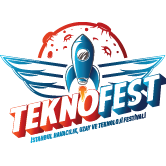 “Obviously I like to work in-breadth; working on different topics which are actually related with each other. In that way, I can create connections; for example I can crate connection with HCI to games, to the education of special kids, or technology enhanced learning which is like a spider web.”
“Obviously I like to work in-breadth; working on different topics which are actually related with each other. In that way, I can create connections; for example I can crate connection with HCI to games, to the education of special kids, or technology enhanced learning which is like a spider web.”
“I had already kind of research agenda on my mind before coming to METU. The first item on the agenda was to work on human-computer interaction (HCI) because in Indiana University we had a very nice HCI Lab and I had the opportunity to use those facilities. When I was a PhD student, I said to myself that when I go back to Türkiye, I will establish such a lab at METU…”
“As METU is pioneer for many projects and research fields, I tried to convince that it needs to be in a leading position in HCI field.”
“I think that our capabilities are not much different than the European or American institutes. I know it because I already have many contacts from those countries with whom I try to keep in contact; European and American colleagues. As I said earlier, METU is very supportive for research activities so I am very happy and satisfied with our University’s support.”
Tuğba Gürçel: Thank you very much for accepting to share your research experience as well as your academic career with us via this interview. Let me start with your educational life and then please tell us how you decided in this specific field.
Prof. Dr. Kürşat Çağıltay: I have a long education history. I got my Bs degree from here, METU, Mathematics Department and I did my Master’s degree in Computer Engineering Department, again in METU. While doing my master’s I also worked for METU computer center for about eight years, I was the director of Computer Networks Division. Actually, I was part of a team at that time and we initiated the internet project in Türkiye. In 1993 the internet was in service all around Türkiye. After those eight years, I decided to continue my career as an academician, so decided to go abroad for conducting PhD. I went to US, Indiana University to the Department of Instructional Systems Technology. When I started my PhD, after first year I decided to do a second PhD which was on Cognitive Science. On 2002, I got double PhD degrees from Indiana University. Since 2002, I have been in METU as a faculty. My home department is Computer Education and Instructional Technology Department but at the same time, I am affiliated with Informatics Institute where I teach a course called Human Computer Interaction under Information Systems Department. I am also affiliated with Game Technologies program..
T.Gürçel: When it comes to your research projects, I know that you have been involved in many research projects, so could you please tell us how you decided the path to follow, which steps you took?
K.Çağıltay: Actually, it was originated from my PhD; when I was a PhD student, I have been already involved in some research projects in Indiana University with my professors and classmates. I had already kind of research agenda on my mind before coming to METU. The first item on the agenda was to work on human-computer interaction (HCI) because in Indiana University we had a very nice HCI Lab and I had the opportunity to use those facilities. When I was a PhD student, I said to myself that when I go back to Türkiye, I will establish such a lab at METU, so this was the first research agenda item. Other than this, I was already involved in education technology research activities. It was also related with my department so I did some small scale research activities while I was doing my PhD.
When I returned back, I had many PhD and master’s students so I continued to work on those projects. One of the research items was games and simulations. I believe that especially computer games have a great potential in education, not only in K-12 but also for adult education as well as the professional education. So, computer games was a research item that was on my mind when I was doing my PhD, and when I turned back to Türkiye, one of my first master’s students conducted her study on computer games and the second one, she also wrote her master’s thesis on computer games. Also when I came back, I wrote a research proposal to TÜBİTAK to establish a lab in our campus and at the same time I made several proposals to the University in order to impose the idea that the HCI stuff is important and METU has to be the pioneer in this issue too. As METU is pioneer for many projects and research fields, I tried to convince that it needs to be in a leading position in HCI field. Turning back to TUBITAK, my first proposal was rejected because of my mistake; I submitted my proposal to the wrong group. In my second attempt my proposal was accepted and I got some funding from TUBITAK and I also collaborated with METU Computer Center because in order to establish such a lab I needed a physical environment too. We did an agreement with METU Computer Center so they decided to allocate a room. This project was also supported by the University, President’s office. This was a collaborative activity.

T.Gürçel: This was a HCI lab based on METU Computer Center, am I right?
K.Çağıltay: Yes, it is called “Human Computer Interaction Research and Application Lab” and it has been established in the building of Computer Center and the supporting personnel are also the staff of the METU Computer Center. I am the academic advisor of the lab and it is open to all METU members; whoever wants to come and study on human computer interaction can use the lab.
T.Gürçel: Can we state that the purpose of METU being the leader in this field is achieved?
K.Çağıltay: Yes, absolutely. This was the first HCI lab in Türkiye with an eye-tracking facility so we have state-of-art technologies and the lab itself complies with the industry standards. Later on new labs were established in other universities but before they made a visit to our lab and took it as a model. Not only the universities but also companies like Turkcell visited us and got our feedback in establishing such a lab environment.
T.Gürçel: It is nice to hear that METU has been pioneer in this field too. Let me ask you about sharing the outputs of the research studies conducted in this lab with society, to what extent the outcomes of your research are known by Türkiye?
K.Çağıltay: The lab publishes all the outcomes of the research activities; several masters and doctoral theses, and research papers which were written by using lab facilities are published. Also, recently this lab was approved by the Turkish Standards Institute (TSE) and in this way; our lab became the first accredited lab (by TSE) in Türkiye. In the near future, we are going to serve to the e-government project which is run by the state. Time to time we also publish some public news data or newsletters about our activities in plain language. It is overall a very active lab which is heavily used by different departments of the university. That is one of the activities, the other one is, as I said, about computer games. When I returned back, I established a research group for simulation and games in education, in short, we call it as SIMGE. Under this research group, we conduct research about how we can use games and simulations in education. So, some of my students develop games, some of them develop some methodologies to evaluate games. It is also a very active research group and a pioneer again in the field of games and simulations in the education.
T.Gürçel: Are those research groups consisting only of BÖTE students?
K.Çağıltay: Yes, from our department and from other departments too. Actually there are students from different departments; as it is not an official group, students who are interested in games and simulations can work there. Turning back to the activities… there is also an EU-Leonardo Project called ENGAGE and it is about the use of games in education. The project is terminated almost two years ago and METU had taken part of that project, which was consisted of a senior research group, we were accepted as a partner due to our research activities.
My current research activities are; I call the umbrella term as the technology enhanced learning and under that heading we have HCI, computer games and other innovative technologies that are used in education. For example, with one of my colleagues from Atılım University we organize Robotics Programming Camps especially with the children from lower socio-economic income groups. For these kids, we organize summer and winter camps. Actually we still continue work on that robotics program activity for kids. In summer time, especially in June, for the group of students who come from all over Türkiye under the İLKYAR program, we organize robotic programming seminars and classes. As our activities are under technology enhanced learning and in order to enhance learning, programmable robots have high potential. Children also love to build those robots, it not only an entertaining but also active/effective learning activity.
T.Gürçel: These projects are mainly funded by TÜBİTAK, METU BAP and by the EU, am I right? It seems that you do not have funding problem…
K.Çağıltay: Yes, I got funding from local sources like BAP or from TÜBİTAK and I did not have funding problem until now. In addition, I have many ÖYP students so we try to use their budget to create a lab environment. For example, in our department a couple years ago I established a lab for Technology Enhanced Learning of which the funding mainly comes from the budget of ÖYP students. So ÖYP has been a very nice program for us and I am very happy to work with my ÖYP students.
T.Gürçel: It should be very important to have this kind of research group; this seems to one of the main reasons of METU being pioneer in this field. When you compare Türkiye with the rest of the world, how would you evaluate its situation?
K.Çağıltay: I think that our capabilities are not much different than the European or American institutes. I know it because I already have many contacts from those countries with whom I try to keep in contact; European and American colleagues. As I said earlier, METU is very supportive for research activities so I am very happy and satisfied with our University’s support. However, other universities are far behind METU’s activities. Therefore it is also our mission to help them to catch up at least with basics, I think. METU is not Harvard or MIT but with this limited amount of funding, we are doing a really incredible job.
T.Gürçel: Let me continue with the specific field you are working, as you are specialized in technology enhanced education how do you evaluate the education policies followed in Türkiye? Are they compatible with level reached in the field of technology enhanced learning? Do you think that your research had an impact in shaping those policies? To put it in another way, have the outcomes of your research been incorporated into the practice? For example, FATİH Project… Is it parallel to your work?
K.Çağıltay: It is a different story… Like in many fields, in education too, the decisions are not made by research findings but the political decision makers. I was in contact with the decision makers, for example for the FATİH project; at the initial level I have been involved in some of the activities. For sure, I would like to have an impact in shaping of the policies; my primary objective is to make my country’s kids to become highly-educated grownups by contributing to their education life. Unfortunately, politics and scientific thinking are two different domains and do not always go in parallel. So I have my own agenda. I believe that technology may enhance learning that is why I am trying to find out the ways we can use the technology. I mean the technology is not the target but the leverage and I hope that it helps the learning process by making it more comfortable. So I am working on that aspect but I am open to consult any institution whenever they ask. But at the same time, I dot limit my research activities with Türkiye because I think that we need to catch up with other countries. For example my Mecca is MIT’s Media Lab in this field; they really do a great job in terms of technology development and research activities. So I am not only trying to make METU the best in Türkiye but one of the best in the world too. That is why I have to publish in international journals and tend to keep in touch with international colleagues and try to make a worldwide impact. There are many things to do and I think that we should not limit our scope with Türkiye since the threshold is very high in the world; we have to conduct more research, develop new technologies and create more patents.

T.Gürçel: When it comes to the applicability of your work, are there any pilot schools where you practiced the outcomes of your research?
K.Çağıltay: Yes sure, we try to test our products in different settings. For example, with one of my doctoral students we are working on smart toys project right now and we collaborate with couple of preschools. We test them in the actual environment. Another example is the Robotics Camp where we collaborated with TEGV; this was also the project of one of my doctoral students who wrote the dissertation on educational robotics. So, we generally try to conduct our experiments in the actual environment because if it is out of context, the technology has no use. Actually, last year I got another funding from TÜBİTAK for another project and now we are developing innovative technologies for mentally handicapped children; the project is called as ÖZTEK (Technology Enhanced Learning for Special Education Children). For instance, in that project we work with two schools in Ankara and we use innovative technologies for mentally handicapped children in collaboration with teachers, parents and also with other academicians. So we get feedback from different stakeholders. We use these technologies and then try to understand their effectiveness and efficiency of those products.
T.Gürçel: This project is at which stage? Have you started to get feedback about your products?
K.Çağıltay: Yes, we have been doing some prototype testing and the results are very promising. First of all, until now there were no technology enhanced learning and education materials for special education kids; for mentally handicapped children.
T.Gürçel: You mean in Türkiye or in the world?
K.Çağıltay: In Türkiye, there is almost none and in the world also it is very rare. So, our project will be one of the pioneers not only in Türkiye but also in the world. That is one of the reasons why we are very enthusiastic about the project. Up to now, as I said, our observations showed that it has really a great potential. For example, last week we did a pilot study with autistic kids in one of the centers and teachers’ feedback were on the same axis. Even though the kids were very little; I mean kids of 2-3 years old, the responses taken from the materials were very different from the traditional methods. We saw that the impact would be high and this is the first year of the project.
T.Gürçel: Is this a three-year project?
K.Çağıltay: Yes, exactly. This is a three-year TÜBİTAK 1001 project.
T.Gürçel: I also would like to ask your recommendations for the researchers who are at the early stages of their career… How should they determine the goals and the steps to follow? In other words what are the stages of a successful academic and research career?
K.Çağıltay: I think that there are two paths that an early-stage researcher may follow. The first path would be in-depth research agenda and the second one is in-breadth research agenda. By in-depth, I mean you can pick one topic and can be an expert on that without going into detail of other things and by focusing on it to the deep. The other way, which is also my preference, is in-breadth. Based on my educational background, I have background of mathematics, computer engineering, instructional technology… So, obviously I like to work in-breadth; working on different topics which are actually related with each other. In that way, I can create connections; for example I can crate connection with HCI to games, to the education of special kids, or technology enhanced learning which is like a spider web. But, as I said, this is a personal preference, some people may get lost when they work in-breadth and they may like focusing on one thing at a time. So, none of the approaches are right or wrong and depending on your personality you can pick one area. Working with in-breadth style requires extra work, I mean you need to work with many different disciplines and associate them to each other. This is how you will end up with highly loaded set of activities, this is one side but that also gives you the chance to make publications in many different fields and different journals. There are pros and cons for both ways. So, this is my humble suggestion for the early-stage researchers. They also definitely have to attack to TÜBİTAK funding. Yes, this is a challenging course; I got rejection several times, I got angry but the next year I submitted another proposal and finally I got the funding. There are also opportunities in European Projects which offer good funding opportunities… And networking is very important both at the domestic and international levels. If you start to work in a networking activity, they will certainly find you for the next project.

T.Gürçel: And because of the path you have chosen; the in-breadth method, you must be taking part of many groups and be collaborating with researchers from different fields…
K.Çağıltay: Yes, sure and after a while it is becoming very hard to manage all those projects. I mean right now, we made a proposal with about 25 countries for a new open courseware project. We are also writing another project proposal with UNESCO targeting the Central Asian countries. There are some other already running LLP projects. So whenever a new call comes up in Europe, I got several messages from consortiums who are looking partners from Türkiye. And then it is becoming harder and harder to handle all these projects. Then you start to pick the projects; if it is a small-budget project then you eliminate it and go for the bigger projects.

T.Gürçel: Lastly, may I ask your future prospects?
K.Çağıltay: We are taking part of a project that has been submitted by a European country (Finland); it is an open courseware activity for Europe. Another project proposal that we are working on right now is for Central Asian countries; Turkic countries in Central Asia and if accepted, it will be supported by UNESCO. Again this will be an open courseware project; we will develop some freely accessible courses for Central Asian countries. Another one that we have already submitted to FP7 is also about e-inclusion for mentally handicapped children; similar to my local project but it is going to be a European project. Again there are some other serious-game projects for example developing some health games especially for stroke patients. Other than that, with one of my doctoral students we are planning to initiate a collaborative project with South Korea, Finland and Türkiye. This is going to be kind of policy research project where we will try to explore educational technology policies in Korea, in Finland and in Türkiye. The reason is that Finland and Korea are top countries in education and we will try to understand the dynamics of those countries and attempt to apply those policies to Türkiye. So in this new upcoming project we will be looking to another dimension of the issue. I have been to South Korea ten days ago and we initiated the collaboration for the project. So we will be focusing on this project with my doctoral student. There are also other bits and pieces projects but these are the major ones.
Overall, as I stated before, my main aim is to explore effective and efficient use of technology in learning process of human beings. It may not be possible to increase learning process significantly but we can definitely increase quality of this process. If technology has a significant impact in many different aspects of our life, we also need to continue to explore its potential in teaching/learning processes.
T.Gürçel: Thank you very much for sharing your inspiring research career with us.
K.Çağıltay: You are welcome.










